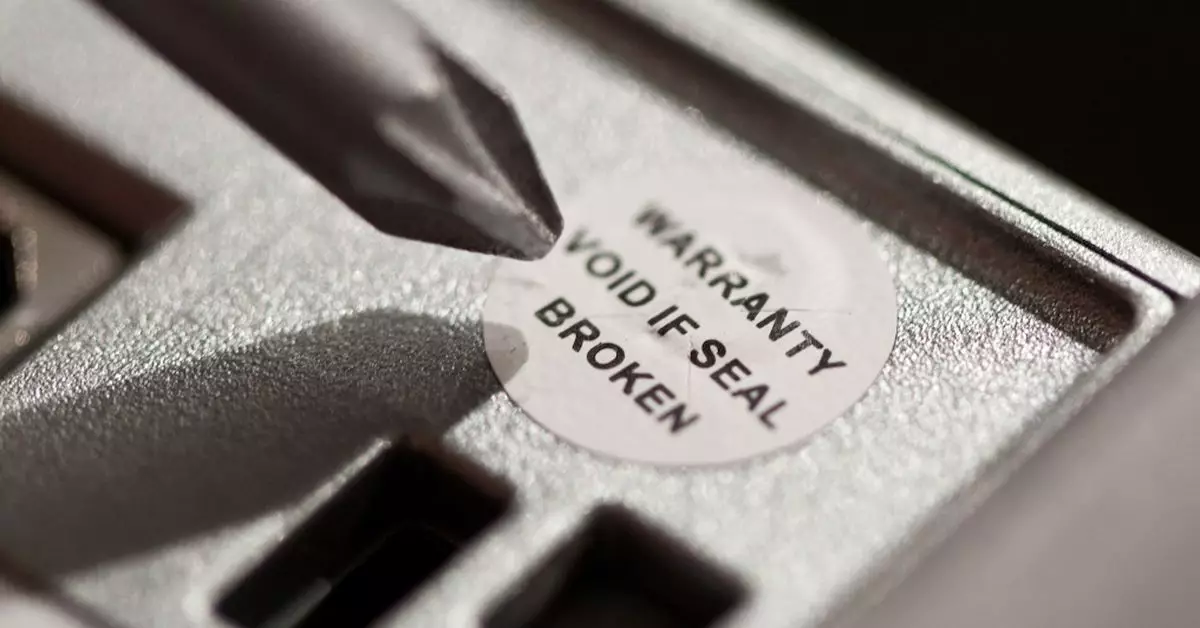The Federal Trade Commission (FTC) recently sent letters to ASRock, Gigabyte, and Zotac regarding the legality of “warranty void if removed” stickers. These stickers, commonly found covering screw holes on gadgets, have raised concerns about warranty practices that may be illegal. The FTC is urging these manufacturers to revise their warranty policies and customer support practices to ensure that they are not unfairly voiding warranties based on the removal of these stickers.
Each letter sent by the FTC to ASRock, Gigabyte, and Zotac points out specific provisions in their warranty policies that threaten to void warranties if the products are tampered with or modified in any way. For example, ASRock’s warranty explicitly states that the warranty will be null and void if the outer case is opened or if additional parts are installed or removed. Gigabyte’s warranty includes a provision that removing or damaging a manufacturing sticker inside the product will result in the warranty no longer being valid.
The Magnuson-Moss Warranty Act
The FTC is invoking the federal Magnuson-Moss Warranty Act in this case, which aims to prevent companies from imposing unfair warranty conditions on consumers. This law prohibits warrantors of consumer products costing more than five dollars from conditioning warranties on the use of specific articles or services unless certain conditions are met. The FTC is closely monitoring the warranty policies of these manufacturers and plans to review them after 30 days.
In 2018, the FTC took action against Nintendo, Sony, Microsoft, Asus, HTC, and Hyundai for similar warranty practices related to voiding warranties based on stickers or modifications. Some of these companies, including Nintendo, Sony, and Hyundai, updated their policies following the FTC’s investigation. iFixit has also discussed the legality of “warranty void if removed” stickers in different parts of the world, shedding light on the complexity of this issue.
Rethinking Customer Support and Warranty Policies
Companies like Asus have been prompted to reevaluate their customer support and warranty practices following scrutiny from investigative sources. Gamers Nexus, for example, highlighted concerns about Asus’ warranty policies, prompting the company to reconsider its approach. This ongoing dialogue between manufacturers, consumers, and regulatory bodies like the FTC is crucial for ensuring fair and transparent warranty practices in the tech industry.
Overall, the debate over “warranty void if removed” stickers raises important questions about consumer rights, warranty transparency, and corporate responsibility. As companies navigate these legal challenges, it is essential for them to prioritize the interests of consumers and comply with relevant laws and regulations to build trust and accountability in the marketplace.


Leave a Reply